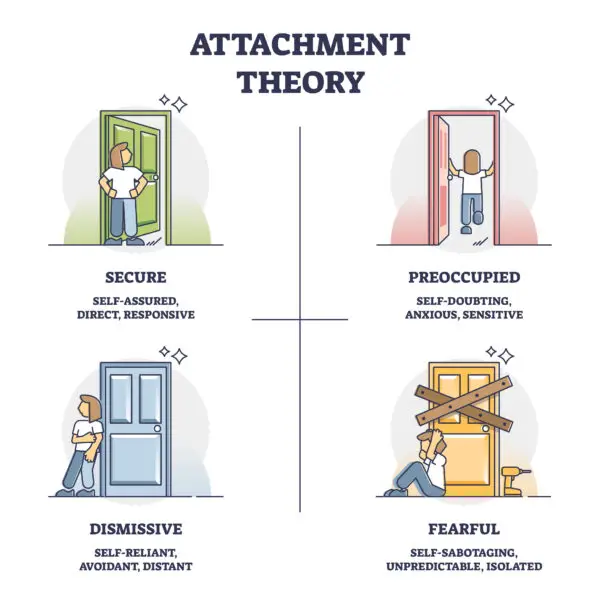Why Are Relationships Often Difficult for People Who Have Come From a Narcissistic Family?
An issue which troubles many people who come from narcissistic families is that they struggle in their relationships with others – this can be with work colleagues, school or university colleagues, friends, acquaintances, family members and romantic interests/partners. The struggle is in the inability for many to feel close or safe with others and that inability is there for many reasons.
Some people struggle to have any close relationships, some have a couple of people to whom they are reasonably or very close, and others have many people around them and these relationships may be superficial, or they may be closer. Many may feel isolated or alone even with people around them.
A person’s capacity to feel close to others will vary. Some may find that they can feel close to others and others may find themselves feeling more numb towards others and might know that they like a person, but it may be more intellectual than emotional. Others may find that relationships of any kind feel nerve-wracking, or even terrifying, and they may try to avoid them as much as possible.
Why does this happen?
Our Attachment Styles

We each have an ‘attachment style’ which we develop in the first year of life and it stays with us into adulthood. Our attachment style shapes the way we behave in all our subsequent relationships, but we can see it especially clearly in romantic relationships.
Romantic relationships can be especially challenging for many people with a narcissistic parent. Some will go on to find themselves with narcissistic partners in adulthood and others won’t. Many people will have an ambivalent, avoidant or disorganised attachment style to others. This means that they will struggle to feel secure within their relationships with others and in general feel that they will not get their needs met. Please see here for more information on attachment styles.
Complex PTSD
Many children of narcissists will have developed Complex PTSD and one of the ways in which this manifests is in ‘disturbances in relationships.’ If you would like to look at a questionnaire which can help to identify if you may have PTSD or Complex PTSD (people can have one but not both), you can find the International Trauma Questionnaire either on this website here or on their own website, here, where there are translations into many languages. The questions around disturbances in relationships are: “I feel distant or cut off from people,” and, “I find it hard to stay emotionally close to people.”
The International Trauma Questionnaire focuses on defining whether a person has Post Traumatic Stress Disorder which consists of:
- Re-experiencing in the here and now
- Avoidance
- Sense of current threat
or Complex Post Traumatic Stress Disorder which also includes:
- Affective dysregulation
- Negative self-concept
- Disturbances in relationships
Isolation and Loneliness
For some people, there is a feeling that they will always be alone in some way. They may feel that they are so damaged that they could never be loved and that if anyone really knew them, they would be horrified of what they would find deep down. For some, it can feel preferable to hide and feel like it’s not worth trying to get to know people that will ultimately reject them anyway.
Some will struggle to imagine a life with friends, a successful romantic relationship and a feeling of general contentment and moments of happiness.
Isolation (being separate from others) and loneliness (feeling alone when you need the support of another) are an issue for many children of narcissists.
Some people can find themselves lonely even when they have others around them. Isolation and loneliness may be maintained by thoughts and feelings which we have had for so long that we take them to be facts, such as, ‘No one could ever like me,’ ‘If someone really knew me then they would see that; there is nothing there/I am a monster/I am defective.’ There can be an expectation that every relationship will end in drama, rejection, and pain.
Many people may struggle with being alone and the fear of loneliness and will therefore cling to others. Many fear the feeling of a gnawing emptiness which can feel overwhelming. Loneliness and being alone are different and for some, being alone can feel very safe. No one can hurt us when we are alone.
I am Boring

Many children of narcissists have an ingrained core belief that they are boring. For a child who cannot elicit the interest of their parent, this will be the logical conclusion that they will come to, “I must be the dullest person in the world as even my own mother/father has no interest in what I think, have been doing, or where I would like to be in life and what I would like to achieve.” This has a serious effect on a person’s self-esteem and self-worth. We can end up thinking that we don’t have much to offer others and we may feel grateful that anyone even speaks to us, let alone be able to value ourselves as equal to another person. Some people can feel a lot of pressure to be ‘funny’ or ‘entertaining’ to others. Just showing up as themselves does not feel like it is enough.
Feeling Like an Outsider: I am Odd, Weird or Strange

Many people feel like an outsider or an alien, or they feel as though they do not really belong anywhere. Many have been called crazy or mad and had their mental health questioned by their narcissistic parent. This will make people feel that there is something wrong with them and this can be exacerbated by feelings of being disconnected from themselves and others and feelings of derealisation (at times feeling like the world is not real) and depersonalisation (at times feeling like they are not real) which are two conditions that many people have as an outcome of narcissistic abuse.
Some people feel as though their life is like looking through a window at a party at which everyone else is enjoying themselves and to which they have not been invited. Actually, many people find that they want to be invited to things, to feel liked and included, but don’t actually want to go, as a social event can make them feel anxious and under pressure to perform.
Relationships Can Feel Exhausting
Many people are hypervigilant when around other people. This means that they are hyper aware of the facial expressions, body language, tones of voice and the things that people are saying. This is a protective mechanism which develops in early childhood, and many will feel it is their fault if anyone looks annoyed or angry and they may try to fix the situation by cheering the person up or finding out if they have annoyed that person. This is a safety mechanism and it is also caused by children of narcissists feeling overly responsible for their own feelings and the feelings of others. We may or may not be consciously aware that we are doing this. We may minimise the amount of time we spend around others by avoiding making arrangements to meet, or by making excuses not to, and we may need a lot of time to process and decompress after being around others. We may end up pushing others away either consciously or subconsciously. If we are people pleasers, we may feel unable to say no to people when they ask for favours, and this can lead to relationships feeling exhausting.
Relationships Feel Transactional
When early childhood relationships with parental figures are based on the parent getting their needs met in some way and not in compassion, empathy and care for the child, then the child can grow up with a feeling that all relationships are transactional so they will be looking for the ‘real’ meaning and the subtext in all situations. They can feel that nothing can be taken at face value as they think that people don’t really mean what they actually say, they always really mean something else. Other people can be seen as manipulative and there are paranoid ways of thinking. This paranoia stems from very real experiences where the narcissistic parent did have the worst interests of their child at heart.
Trust Issues
Many children of narcissists have deep, ingrained core beliefs that other people are not to be trusted. There is an expectation of being betrayed, let down, disappointed and hurt. We may be very suspicious of others and at times almost be like a detective trying to solve a case in our questioning of situations. This can be difficult to overcome but it can be done. Perhaps a part of a person’s defences will always be a little on guard even after significant recovery has taken place.
When moving into the adult world where some people will be genuine, compassionate and kind, there can be thoughts of, ‘What do they really want?’ ‘Why are they being nice?’ ‘No one is that nice’ ‘They are up to something.’
Fears of Abandonment and Rejection

A fear of abandonment is a deep-seated fear of being left by people that you are close to. This fear affects your thoughts and behaviours. It is rooted in childhood from physical or emotional neglect or from an event such as the loss of a parent through death or divorce. This trauma results in an individual developing a fear or expectation that it will happen again. These fears are painful and can lead to behaviours of both avoiding others and/or clinging to others and this causes issues in relationships. Please see article here.
Conflicts in Relationships
Many people struggle to be able to resolve conflicts in relationships and may retreat and withdraw if one happens. They are likely to have learnt that any conflict has a pretty big outcome, such as the narcissistic parent going into a rage, being highly critical, or not speaking for hours or days on end. There may have been physical violence, they may have had their possessions broken, or been told to get out of the house for a long period of time or for good. There is often a high price to pay for any conflict which is why submissive defences are the go-to behaviour. Many also feel if they stand up for themselves, they will be rejected. The fear and expectation of rejection may feel unbearable.
Eye Contact

Many people from a narcissistic home struggle to make prolonged eye contact with others and may find themselves looking down and away a lot. If we have regularly been looked at in a judgemental and disapproving way, we can come to fear seeing people look at us in that way. Making eye contact with others may feel confrontational and submissive body language develops which signals to others that we are not a threat. Humans bond with others through eye contact so this can cause disruption in relationships with others.
“Recent functional magnetic resonance imaging (fMRI) studies have revealed that eye contact activates the social brain.” eNeuro.org (link below)
When the social brain or the social cognition system is activated, it enables people to understand others by forming social impressions which explain how and why people do the things that they do. We are able to consider the thoughts, motives, needs and feelings that other people may have.
“Eye contact, or mutual gaze, conveys the message, “I am attending to you,” thereby promoting effective communication and enhancing social interaction.” eNeuro.org (link below)
Struggling to maintain eye contact will interfere with social interactions and experiencing our own social pain, or seeing another person experience social pain, such as being excluded, rejected or bullied activated the same brain circuitry as physical pain. Personality disorders, depression and PTSD, among other conditions are known to interfere with social cognition.
Emotional Dysregulation
People from narcissistic families will often be ‘triggered’ a lot of the time, especially when they are around other people (as this has been dangerous in the past) and this means that they will often be in the mammalian defences of fight, flight, freeze, submit and attach and won’t be feeling relaxed and able to talk freely.
“It takes almost every part of the human brain, arguably the most complex thing ever created, to work and play well with others… Humans have uniquely complicated social interactions which are controlled predominantly by the prefrontal cortex. This can control and override more immediate responses, so that even when we are feeling angry or insulted, we may be able to respond gracefully.” verwellhealth.com (link below)
The pre-frontal cortex is said to go ‘offline’ when we are triggered, and we go into an automatic response from our repertoire. Please see article here.
Overexplaining, Oversharing, Undersharing - Rigid and Porous boundaries
A boundary can be defined as a barrier which separates two things. Healthy psychological boundaries between people mean that there is respect for others and the self and the beliefs, ideas, opinions, likes, dislikes and wants and needs of all parties. A psychologically healthy person is aware that they do not have rights or ownership over another. Healthy boundaries create mutual trust.
Children in narcissistic families are punished for trying to set boundaries and are conditioned into being passive, compliant and dependent from a young age. Boundaries are unhealthy and can be porous and/or rigid and there can be a lot of enmeshment which can be defined as the state of being entangled or entrapped.
Rigid Boundaries
Rigid boundaries can be created in families where there is little physical or emotional contact between parents and child and the child meets their own needs and/or it is not safe to be vulnerable. Being alone, mistrustful, self-reliant and hypervigilant feels safer.
Examples of Rigid Boundaries
Difficulty in saying yes as it may make a person feel too vulnerable.
Defending oneself with a wall which protects us but also keeps other people out.
There can be a strong feeling of wanting to avoid others.
There may be a guardedness about personal information as there can be a fear that it will be used against you in some way.
There is an avoidance of asking for help as it can feel vulnerable, we are open to rejection or feeling obligated to others. Needing help can feel dangerous or like a weakness so there is a lot of self-reliance, self-sufficiency and independence.
Porous Boundaries
Porous boundaries can help people to ‘read’ their parents better and adapt more easily to the current mood or situation. They can be very in tune with others. This can mean that some have difficulties in knowing the difference between their own and other’s opinions preferences and feelings. Their body language may be submissive, and a person may look as though they can’t defend themselves.
Examples of Porous Boundaries
Difficulty in saying no and saying yes when you don’t want to. This may result in many boundary violations.
Expectations of being rejected or there being serious outcomes to saying no.
People pleasing
Valuing other people’s opinions over your own.
Giving too much and sharing too soon in relationships.
Over empathising with others and agreeing with their views, it may take some time and distance to come back to your own points of view.
Many people will have a mix of both styles in different situations and with different people. The issue of undersharing information (feelings of shame and rigid boundaries) and oversharing (porous boundaries and feelings of needing to explain a lot due to feeling misunderstood or not being unable to find the ‘right words’ so that others can understand) can mean that others who are from more secure upbringings may feel uncomfortable. A person who struggles with managing boundaries may seem ‘off’ to others as they find it hard to judge the rules which others live by.
Shame
For some, there can be a fear of other people seeing into them and seeing how bad of a person they think and feel they are. Many people carry a burden of shame which can feel overwhelming, and they struggle to make sense of why it is there, thinking that, ‘If I feel shame, I must be a bad person.’ A person can carry deep-seated feelings of long-standing shame because it has been used as a weapon in their childhood home, and it is also a survival mechanism, because if we are submissive then it can deflect attacks from aggressors. Please see article on shame here.
Projection
We frequently project our beliefs about ourselves onto others and may presume or expect other people to have thoughts about us such as ‘People don’t like me, they think I’m boring, they think I am unattractive,’ etc.
Body Dysmorphic Disorder
A significant number of people with narcissistic parents suffer from body dysmorphia to some degree. Narcissistic parents are generally very highly critical of their children’s appearance, and this can result in their children having very critical thoughts and extreme feelings of dislike towards their bodies, faces and/or hair. This can interfere with relationships with others. People may feel they want to hide away and not want to socialise or they may be very self-deprecating about themselves to others. Causes of body dysmorphia are thought to be perhaps genetic, a chemical imbalance in the brain or traumatic experiences in the past. It can be comorbid with Obsessive Compulsive Disorder, Generalised Anxiety Disorder or an eating disorder. Eating disorders are also common for people from narcissistic households and this can interfere with people’s ability to socialise as they may struggle to eat in public. Please see article on binge eating here.
Substance Misuse
People often use substances to escape from the uncomfortable feelings they have. Addictions can help to regulate our nervous systems and calm us down and ease any anxiety. The need to drink or take drugs can mean that we become too uninhibited when under the influence. Sometimes the need for a drug can overtake all rationale and lead to dangerous situations where we may be self-sabotaging, reckless or impulsive – to our detriment. People who are from a healthier background may find this kind of behaviour baffling or shocking and they may struggle to understand it or empathise and may seek to distance themselves.
The Inability to Feel Joy
For many, there can be a struggle to feel the many positive emotions that can come from having close relationships. In the book Healing the Traumatized Self, the authors speak of studying anhedonia in women with PTSD, which is defined as the inability to feel pleasure. They found that;
“support for an interference of negative effect on their capacity to experience positive affect…especially feelings of shame, in response to imagery of positive social events (e.g., being praised) and in response to positive self-referential referencing (i.e., viewing one’s picture while listening to a list of positive adjectives). Thus, two characteristic responses to generally positive stimuli were observed in traumatized persons. In the first case, individuals reported feeling affectively blunted, detached, or numb, not experiencing joy or pleasure in response to stimuli that should normally provoke such responses (e.g., receiving a compliment of a gift, or a sign of another’s physical affection or embrace). In the second case, traumatized persons reported feeling negative affective reactions to positive events, such as feelings of shame, anger, guilt and unworthiness…. emphasizing that negative feelings such as anxiety and shame were getting in the way of the individual’s ability to experience positive affect.”
Paul Frewen and Ruth Lanius 'Healing the Traumatized Self' Tweet
That this happens for some individuals is going to be influential as the stresses of being close to others can outweigh any perceivable benefits. If we are struggling to feel any of the warmth, closeness, joy or affection for another person that comes from a positive relationship, then there will seem to be little benefit in having close relationships. The inability to feel more positive emotions may also mean that we have a more negative outlook on life so we may complain a lot and be pessimistic and this can be difficult for other people to be around. When we do this we are in ‘black and white thinking’ mode and this is not a realistic place to be. Recognising these patterns in our thinking is the first step to changing them.
Romantic Relationships - A Romance Between Two Adapted Selves

When we come from a dysfunctional background, we are often attracted to a romantic partner who is from a similar background. This can often mean that both parties are living in an adapted version of themselves, and it is the two adapted selves who are having the relationship which will inevitably fall apart, as James F. Masterson says in his book, The Search for the Real Self:
“Although there are many definitions and styles of love, from the perspective of the real self and its development, love is the capacity to acknowledge the other’s real self in a warm, affectionate way with no strings attached…. The welfare of the partner becomes as important as one’s own welfare…. Building an intimate, loving relationship with another is the way we overcome the essential aloneness and isolation of the self as an adult… There are all kinds of illusions that make it appear that intimacy is working for a couple, even when, on closer inspection what we find is not a healthy interchange between two real selves expressing and reinforcing their capacities but a pathological contract between two false selves which, although it may seem to survive for the moment, inevitably falls apart.”
James F. Masterson 'The Search for the Real Self' Tweet
The relationship works for a while as it suits the ‘requirements’ of the adapted self in that it works with our defences and feels like the safest way to have a relationship. James F. Masterson again:
"A good illustration of this is the couple who always fight in public to the extent that friends wonder why they even stay together. The answer is simple: they stay together because they fight so much. It works for them. The classic example of this is the two borderline personalities who project the withdrawing, disapproving parental image onto each other so that they do not have to feel and be aware of the associated depression. As long as they are angry at their partners, they do not have to feel depressed. For them, the conflict is preferable to feeling intrapsychic depression. If you ask them about their relationship, they are always “having difficulties”; but actually in a pathologic way, it is a relationship which works for them and satisfies the needs of their false selves.”
James F. Masterson 'The Search for the Real Self' Tweet

With healing and recovery, our relationship with ourself changes, we move out of our adapted self as our old defences subside as we no longer need them and we move into our real self with its healthier defences and subsequently, we will have different demands from all our relationships and especially from a romantic relationship. We can break the cycle of being in relationships which are unhealthy for us and ultimately unrewarding.
Lack of Social Skills
Many people feel very uncomfortable with making small talk with others. Low confidence and low self-worth may have inhibited their interactions with others and many children of narcissists spent their childhoods being quite isolated or being bullied for many of the reasons above and this can have an effect on their social skills.
Social skills can be learnt, and we can become proficient at small talk and conversation in general over time. There are many YouTube videos which can help with learning these skills.
Resolving the Issue of Connecting with Others

Resolving trauma will help with getting to a place where anxiety around others is not so uncomfortable or paralysing. This can be done by developing our self-awareness and/or with the help of a good therapist.
The relationship with a therapist can be, for many, the first time anyone has truly listened to them and shown them empathy and care. We may be able to speak about things we haven’t told anyone before and this can help to lighten our burden, process the heavy feelings and memories we carry and lessen the shame. All these things will help us to relate to others better.
Suggestions:
Learn the art of small talk
https://www.youtube.com/watch?v=JWybsoGx5UY
and improving communication skills
https://www.youtube.com/watch?v=mPRUNGGORDo
Work on the ability to sustain eye contact with others
Practicing grounding techniques in social situation can help signal to our nervous system that we are safe and help us to feel calmer and this can prevent us from becoming so triggered. Please see 4-7-8 technique here.
Studying how others behave may help you to be more aware of the boundaries that a person from a healthier family may have. Notice when you have porous and rigid boundaries and if there are any times when you have healthy boundaries.
Work on self-acceptance (through self-awareness) which will help to build confidence and helps us to feel less shame.
Emotions are the language of the body and tuning into these and our body language and sensations can help us to be more in tune with boundary violations and we can get more of a sense of how boundaries should actually be.
Experimenting with hobbies can help us to find ourselves and what we do and don’t like and also give us content to talk about with others.
If you can, remember what you liked to do or what you wanted to be in childhood as there may be clues there as to what you may excel at or enjoy doing the most in terms of hobbies, interests and work.
Children of Narcissists on YouTube
If you prefer audio – I read through this article on my YouTube channel.
There are also a few videos which are not based on articles.
Sources:
Online Articles
Psychology Today – How Eye Contact Prepares the Brain to Connect
eNeuro – Eye Contact Study
https://www.eneuro.org/content/6/1/ENEURO.0284-18.2019
verywellhealth.com – The Social Brain of Humans
https://www.verywellhealth.com/the-social-brain-2488717
Psychology Today – What Does “the Social Brain” Really Mean?
Psychology Today – The Neuroscience of Social Pain
https://www.psychologytoday.com/us/blog/the-athletes-way/201403/the-neuroscience-social-pain
Very Well Mind – Social Cognition in Psychology
https://www.verywellmind.com/social-cognition-2795912
NHS – Body Dysmorphia
https://www.nhs.uk/mental-health/conditions/body-dysmorphia/
Books
Coping with Trauma-Related Dissociation by Suzette Boon, Kathy Steele, Otto van der Hart
Healing the Traumatized Self by Paul Frewen and Ruth Lanius
Sensorimotor Psychotherapy by Pat Ogden and Janina Fisher








